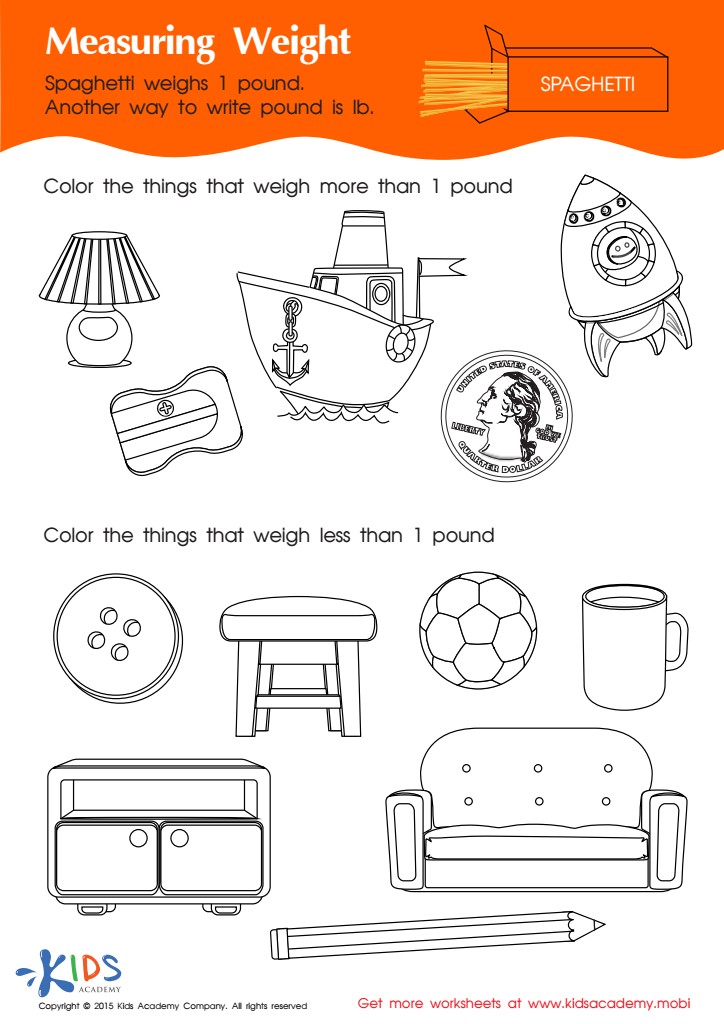Basic Math Skills Extra Challenge Measurement Worksheets for Ages 3-9
6 filtered results
-
From - To
Enhance your child's understanding of measurement with our Basic Math Skills Extra Challenge Measurement Worksheets, designed for ages 3-9. These engaging worksheets provide exciting challenges that develop essential skills like length, weight, and volume recognition. Perfect for early learners, they promote hands-on practice and critical thinking, all while boosting confidence in math. Each worksheet presents a variety of problems that cater to developing capabilities, ensuring that children grasp and apply measurement concepts in real-life scenarios. With clear instructions and colorful designs, our measurement worksheets make learning fun and effective for young mathematicians. Explore the world of measurement today!
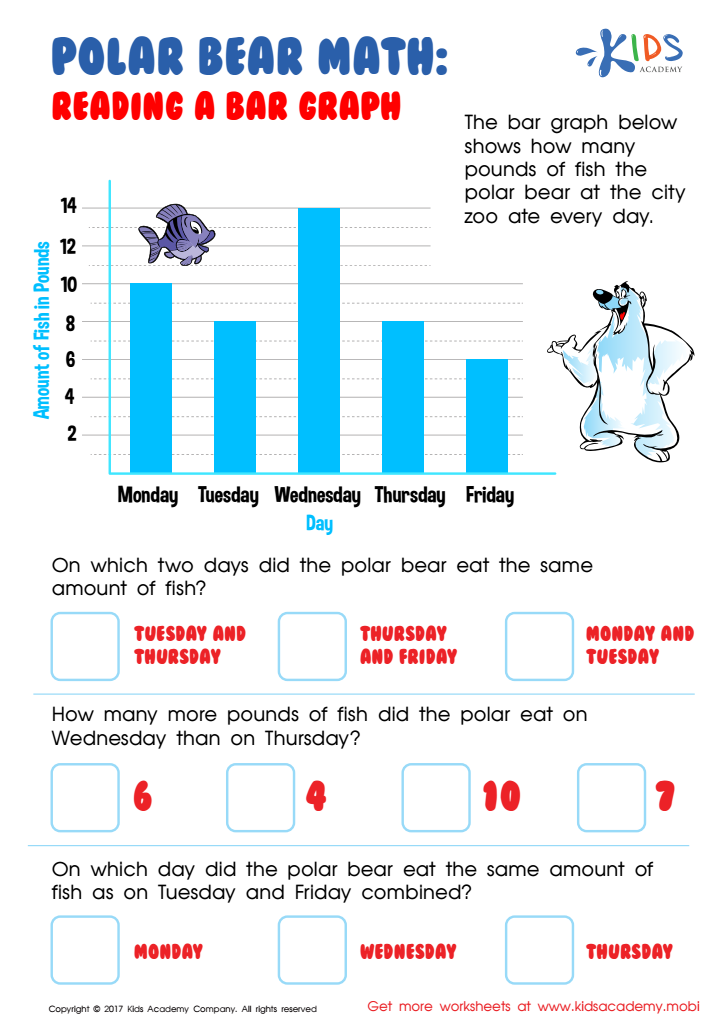

Reading Bar Graph Worksheet
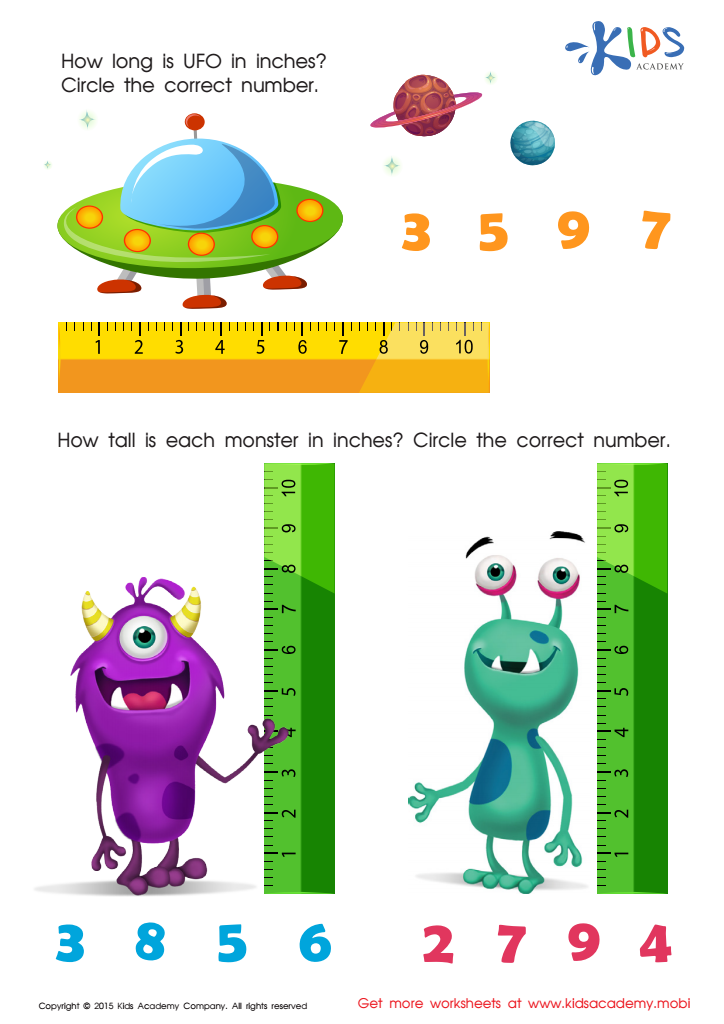

Measuring in Inches Worksheet
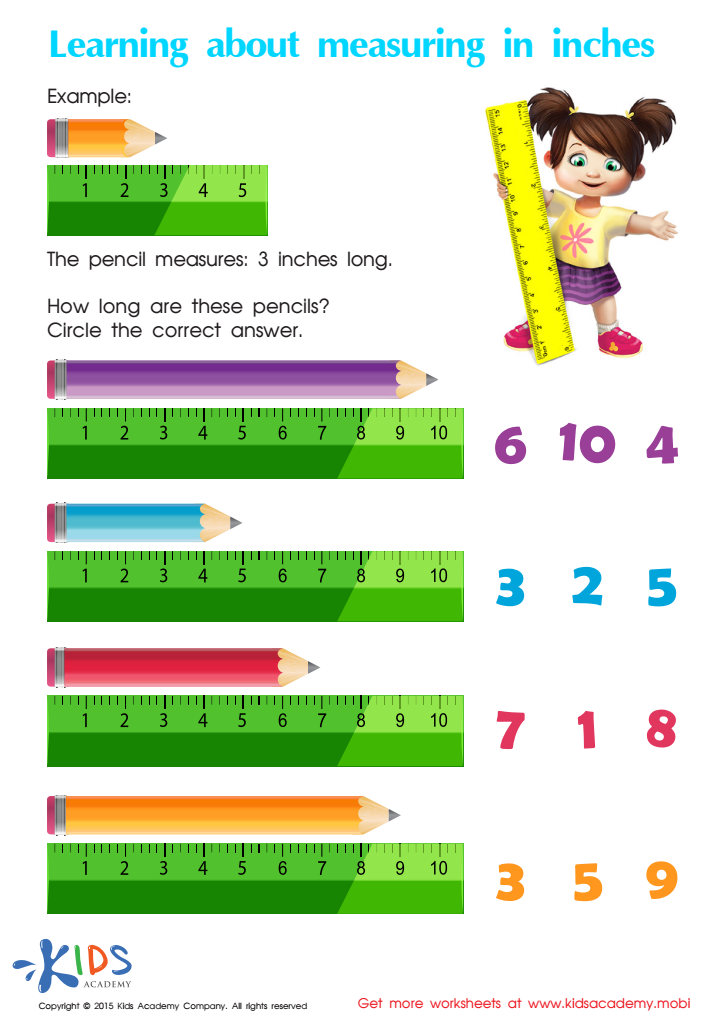

Learning About Measuring In Inches Printable
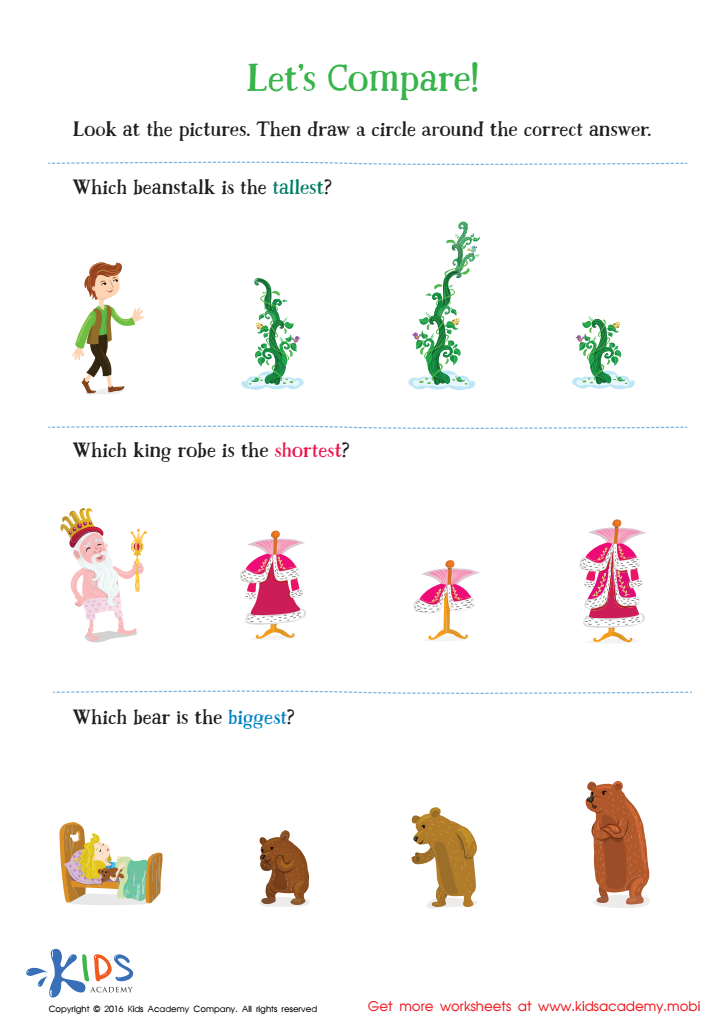

Fairy Tale Worksheet: Let's Compare
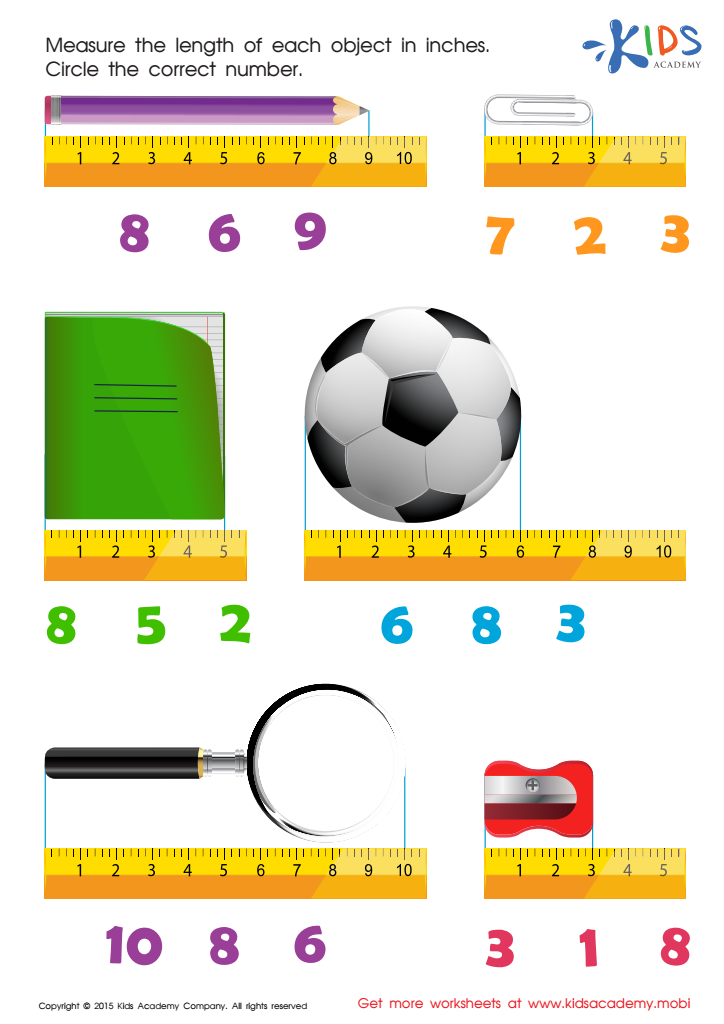

Learning measuring objects in inches Worksheet
Parents and teachers should prioritize Basic Math Skills Extra Challenge Measurement for children aged 3-9 because early math skills lay the foundation for future academic success. Understanding measurement not only enhances numeracy but also develops critical thinking and problem-solving abilities. As children engage with measurement concepts, such as length, weight, and volume, they learn to compare and quantify the world around them, fostering both cognitive and spatial awareness.
Additionally, incorporating measurement challenges introduces real-world applications, making math more relatable and interesting. For instance, activities like measuring ingredients in cooking or comparing heights of plants help children connect mathematical concepts with everyday experiences. This relevance can ignite a lifelong love for math, building confidence as they see the practical uses of their learning.
Furthermore, early engagement in measurement skills can help bridge any learning gaps, ensuring that children are well-prepared for more complex mathematical concepts in later grades. By offering extra challenges, educators and parents can stimulate curiosity and encourage exploration, fostering a rich learning environment. In sum, investing time in these basic math skills not only nurtures academic growth but also equips children with essential life skills, preparing them for future challenges both in and out of the classroom.

 Assign to My Students
Assign to My Students
